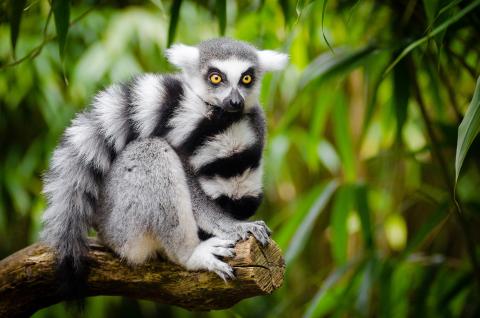Reaction: genomic sequencing of hundreds of primates reveals clues to identify disease-causing mutations such as cancer
A special issue published in the journals Science and Science Advances shares for the first time the genomes of hundreds of primates, representing 86% of known genera. One of the papers -co-led by the Institute of Evolutionary Biology and the Pompeu Fabra University- analyzes the relationship between the genes of these animals and the risk of suffering from certain diseases such as cancer in humans.

Olive baboon (Papio anubis) at Lake Manyara National Park, Tanzania. Credit: Sascha Knauf.
Miguel Llorente - monetes
Miquel Llorente
Head of the Department of Psychology at the University of Girona, associate professor Serra Húnter and principal investigator of the Comparative Minds research group
The study represents a contribution of a magnitude not seen to date in primate genomics. Its scientific implications -both at the level of basic and applied research- are truly significant and reflect the maturity and excellence of the research team led by Tomàs Marquès-Bonet.
In the field of primatology, which is the one I work in, the study will mean substantial progress in several fields. First of all, it will help to understand, and perhaps reorder, the taxonomy of primates, since it covers almost half of the species of our biological order.
Therefore, it will not only have a direct impact on the understanding of the evolutionary process of primates, but also on that of human lineages.
Secondly, and taking into account that more than half of the primate species are currently threatened or endangered, conservation genetics is essential to analyze the effects of habitat destruction or fragmentation, to know the degree of connectivity between populations of threatened species, or to establish future programs for the release and reintroduction of species.
The conclusions are supported by the results, which are solid and relevant to various fields of science, both at a theoretical and applied level. There was no previous evidence, since until now no one had dared to undertake a venture of such magnitude. Therefore, everything provided is of incredible value. There are no methodological limitations in this respect.
As stated in the press release, there are two clear applications. The first is in the field of human health. Taking into account the biological proximity with non-human primates, knowledge of their genome leads to a deep understanding of our own evolution as a species, and also of the diseases associated with our own evolutionary history. A second is related to the contribution that has been made to the understanding of primate taxonomy and to the understanding of the evolution of our own biological order. In addition, as the authors have previously demonstrated, genetics has become a fundamental tool in the conservation of species.
Kuderna, L.F.K et al.
- Research article
- Peer reviewed
- Animals



